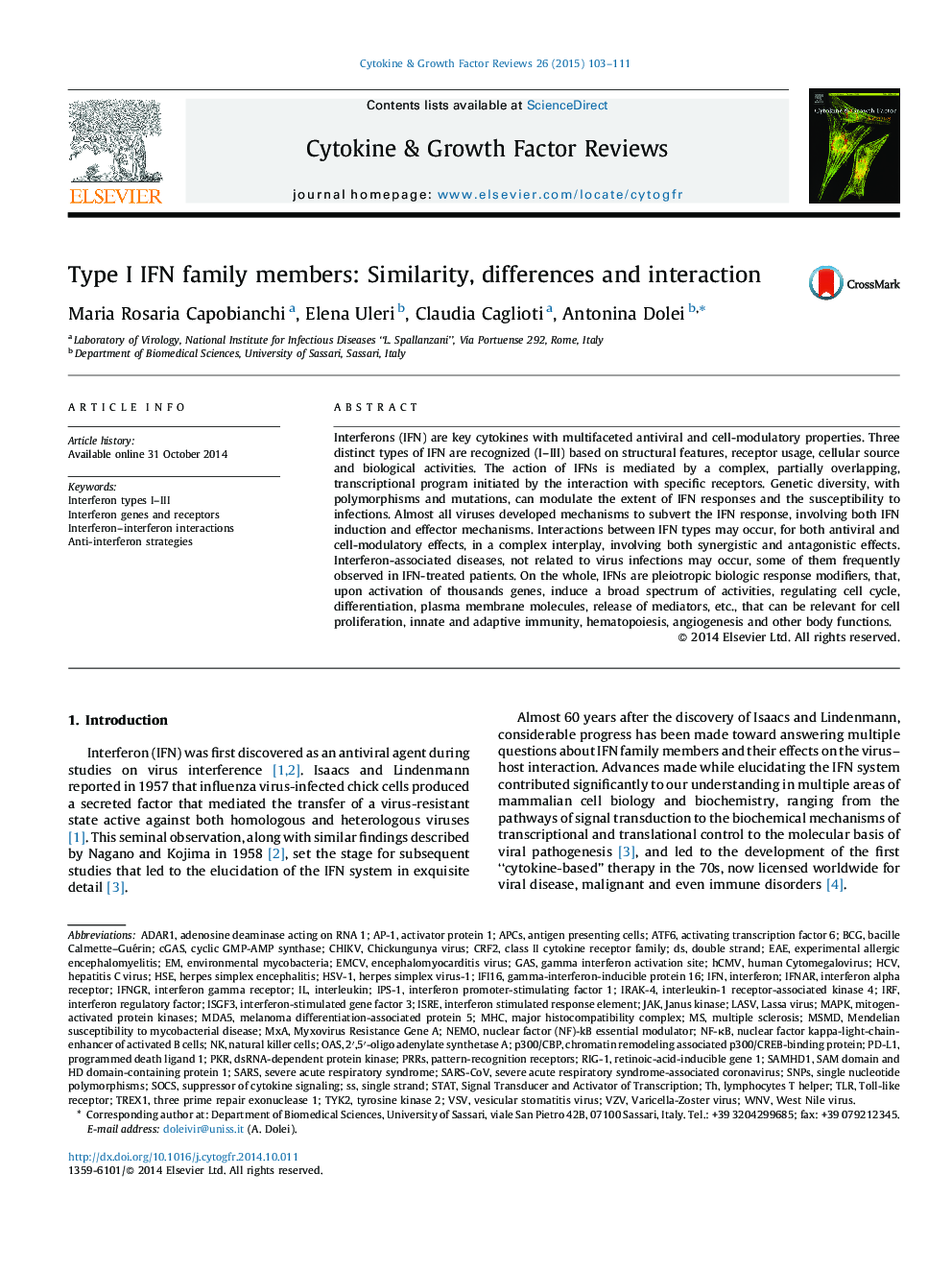| Article ID | Journal | Published Year | Pages | File Type |
|---|---|---|---|---|
| 2170493 | Cytokine & Growth Factor Reviews | 2015 | 9 Pages |
Interferons (IFN) are key cytokines with multifaceted antiviral and cell-modulatory properties. Three distinct types of IFN are recognized (I–III) based on structural features, receptor usage, cellular source and biological activities. The action of IFNs is mediated by a complex, partially overlapping, transcriptional program initiated by the interaction with specific receptors. Genetic diversity, with polymorphisms and mutations, can modulate the extent of IFN responses and the susceptibility to infections. Almost all viruses developed mechanisms to subvert the IFN response, involving both IFN induction and effector mechanisms. Interactions between IFN types may occur, for both antiviral and cell-modulatory effects, in a complex interplay, involving both synergistic and antagonistic effects. Interferon-associated diseases, not related to virus infections may occur, some of them frequently observed in IFN-treated patients. On the whole, IFNs are pleiotropic biologic response modifiers, that, upon activation of thousands genes, induce a broad spectrum of activities, regulating cell cycle, differentiation, plasma membrane molecules, release of mediators, etc., that can be relevant for cell proliferation, innate and adaptive immunity, hematopoiesis, angiogenesis and other body functions.
